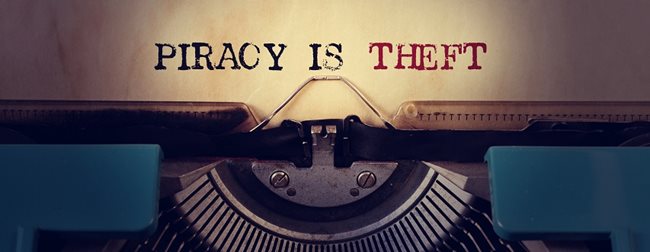7 February 2019
The SoA is continuing to put pressure on Open Library to cease the practice of unlawfully scanning copies of physical books and loaning them out as e-books. This practice is a direct infringement of copyright.

In January we wrote an open letter to Internet Archive – which runs Open Library – demanding that it stops the practice of lending books to UK users. The letter has now gathered over 700 signatures and has received coverage in the Guardian and the Times (behind a paywall).
An Office Manager from Open Library has responded to our letter, but has not addressed the concerns we have raised and simply asks that writers contact the organisation directly.
We have been in discussions with organisations representing publishers and authors across the world about this problem. The Writers' Union of Canada and the Australian Society of Authors are the latest organisations to issue statements condemning the practice.
We have now written to the various organisations listed on Internet Archive’s website as ‘generously’ providing funding. We have asked them to support our position and exert similar pressure on Internet Archive to ensure that this unlawful practice is stopped in order to protect writers and legitimate libraries.
If you have not yet signed our open letter, you can do so here.
And if your books appear on Open Library, please let the Authors Guild know by filling out this form. If Open Library does not comply with the Authors Guild’s takedown notice, do let us know.
Text of letter to funders
Dear
I am writing as Chief Executive of the Society of Authors, the UK trade union for more than 10,500 writers. I note that you are listed as a key funder of the website Internet Archive. We are very concerned that Internet Archive’s Open Library is infringing the rights of UK authors and damaging their incomes. We are asking you to intervene to ensure that the site is taken down in the UK.
You may be aware that Internet Archive runs the website Open Library, which it describes as ‘a non-profit, building a digital library of Internet sites and other cultural artefacts in digital form’. Open Library scans in copies of physical books and makes them available for loan as e-books, a practice which it refers to as ‘Controlled Digital Lending’. This article from the Authors Guild (our US sister organisation) explains more. Open Library justifies the copying and distribution of these books in the USA on the basis of a Position Statement on Controlled Digital Lending, authored by a number of US legal scholars, which argues that Controlled Digital Lending is legal under the US doctrine of fair use.
This opinion cannot be sustained following the recent decision in the ReDigi case, which ruled that the resale of digital files is unlawful. Furthermore, US fair use doctrine does not apply in the UK where all scanning and lending must be authorised by the copyright owner. There is therefore no legal basis for the practice of scanning books without permission or lending them in the UK. Despite this, users in the UK are currently able to borrow scanned copies of physical books from Open Library. That is a direct and actionable infringement of copyright.
The Internet Archive claims that Open Library is ‘honouring the rights of creators’. However, the practice of Controlled Digital Lending does nothing of the sort. Authors are not asked for permission before their work appears on Open Library, and they do not receive any royalties. Authors’ earnings are in decline and many are struggling financially. A survey carried out by the Authors’ Licensing and Collecting Society (ALCS) in 2018 found that an author in the UK earned an average of just £10,500 from their writing per annum. The form of lending that takes place on Open Library has the potential to destroy the e-book market and make it even harder for authors to make a living from their work.
It also competes with borrowings from bona fide UK libraries. In the UK, libraries buy licences for the e-books they offer and authors are also compensated by Public Lending Right which affords them a small payment (around 8.5 pence) every time a book is loaned from a library. These payments are of significant value to authors. The Open Library pays nothing at all to the creator.
We wrote to Internet Archive in January demanding that it ceases this practice which infringes the copyright of writers and is unquestionably unlawful in the UK. We have received a response from an Office Manager which reads as follows:
Thank you for your letter. Please know that we are glad to work directly with individual authors or other rightsholders and do our best to address concerns they may bring to us. Your members are always welcome to contact us at info@archive.org. There appears to be a fair amount of misunderstanding around our various programs and services. Over the years that our blind/print-disabled and e-book lending programs have been in place, we have found that we have been able to best address concerns and clarify any confusion through direct individual contact.
This is insulting and unsatisfactory. Authors who do contact Open Library directly have not been answered or have been told that their works will be taken down “as a courtesy”. They have not been offered compensation, nor indeed an explanation for the blatant infringement of their rights for which there is no legal defence.
As funders of Internet Archive, we hope that you will inform them that they must take down the Open Library site in the UK and must stop infringing authors’ copyrights and damaging their incomes worldwide. If you love books and wish to share them then you must ensure that their creators can receive a fair reward for their work.
I look forward to hearing from you.
Yours sincerely,
Nicola Solomon.
Chief Executive, Society of Authors